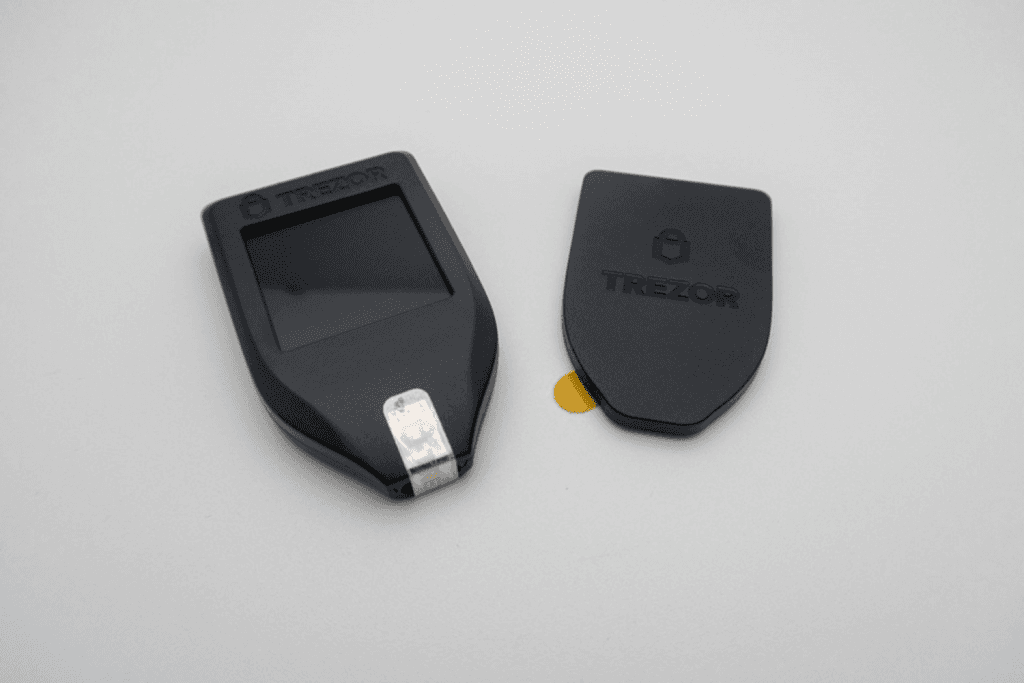
The best thing about investing in cryptocurrency is the fact that your cryptocurrencies can be withdrawn from an Exchange and stored securely in a physical or cold wallet.
What are you doing holding a huge amount of Cryptocurrency without a hardware wallet? Normally, exchange wallets are used for beginners then a hot wallet is used next and finally a hardware wallet is recommended for best security.
Key Takeaways
• Hardware wallets are crypto wallets for storing private keys.
• Hardware wallets should be kept safe since they are prone to risks.
• When scammers request your private keys, your wallet can be hacked.
• A hardware wallet is the safest way of storing digital assets.
• Crypto wallets are of different types; hot, cold, multi-signature, etc.

SEE ALSO: BitBox02 Hardware Wallets – Why You Should Buy One
SEE ALSO: 7 Reasons Why The BitBox02 Hardware Wallet Stands Out For BTC Storage
SEE ALSO: BitBox02 Vs Ledger Nano X (Which Supports More Coins)?
To purchase the best for storing your cryptocurrencies alongside other features like user-friendly, price, etc. Keep reading to know the best picks.
Trezor Model T; Best Secured
This is a common cryptocurrency cold wallet for storing assets. The Trezor Model T is similar to Ledger however, users can access third-party exchanges like CoinSwitch in its web interface. Unlike Nano X, a Type-C USB cable that connects to your desktop computer or smartphone is useful with third parties desktop wallets and Trezor Suite.
Trezor T has a touch screen for easy use by novices than the previous model which used buttons. It has a MicroSD card slot for the usage of SD cards to encrypt PINs and safeguard the device from attacks further.
Model T is convenient but expensive $213/EUR189. It supports over 1,800 cryptocurrencies, offers multi-signature security, and is the only full open-source wallet that permitted a lot of people to create their devices.
Ledger Nano X; Best Hardware
The Nano X is like a USB drive that connects to devices through Bluetooth or USB which implies that your wallet can be connected to your Android or iOS without the use of a computer.
The Ledger team designed the Live software to provide a user interface for all holdings which provides the ability for users to add new wallets for various cryptocurrencies to their devices and handle their portfolios.
Also, if preferred over Bluetooth, it comes with 1 USB-C to USB-A cable for it to be connected to a smartphone or desktop computer. The most common hardware wallet is the Ledger. Over 1,800 cryptocurrencies are supported by Ledger and still increasing. The Ledger Nano X costs $149 being the premium (high-end) version of the Ledger brand of wallets.
Ledger Nano S; Best for Money
The Nano S is similar to the Nano X without some features. The Nano X and S support the same cryptocurrencies and access the Live software.
Unlike the Ledger Nano X, Nano S lacks Bluetooth connection, doesn’t come with a Type-C USB cable so modernized smartphones and devices are likely to have difficulties connecting to it, and stores about 3 applications compared to 100 with Nano X.
Ledger Nano S has room for a few cryptocurrencies simultaneously hence, you can delete an app to add another since your assets will not be affected and can be seen in Ledger Love software. Nano S is excellent for affordability at $59, ideal for beginners, and compatible with over 1800 cryptocurrencies like the X.
BitBox02; Best for Fast Set-up
The BitBox02 is among the most basic hardware wallets for beginners made with Swiss super technology. BitBox has a quick set-up, it uses a MicroSD card for backup which is more rapid than a seed phrase, OLED display, an intuitive touch slider, and an in-app guide.
It is a handy one-piece design with an in-built Type-C and A USB connector, which is available for Android, desktop computers, and third-party wallets.
You can connect this multi-signature, open-source wallet to your device and manage your coins easily with the companion BitBox App. It costs about $133/EUR119. BitBox02 has In-app support for BTC, LTC, ETH, and selected tokens. ADA with AdaLite and 1500+ ERC20 tokens supported with MyEtherWallet.
Ellipal; Best Isolated and Secure
This hardware wallet is isolated from the external world completely. Unlike other wallets, Ellipal is considered secure with 100% due to its isolation. Wireless or wired connections are absent and it interacts via QR codes with a camera at the rear.
Over 41 Blockchain and over 10,000 tokens are supported by Ellipal. Simplex and MoonPay powers Ellipal which integrated with SWFT and Changelly for swift conversions at ideal rates. The mnemonic metal aids in securing mnemonic phrases, the best way for securing a phrase.
Exodus; Best for Beginners
Exodus is a cold source, mobile, and desktop wallet with a simple interface for users and an in-built exchange. The simple interface makes it perfect for beginners in the crypto world because its awesome support feature is important in entering a confusing market while advanced users say it’s lacking other features.
Exodus closed source wallet creates concerns about its security since its code is not accessible for all to see rather, the Exodus team is depended upon to be certain the security system has no holes. It has a custom fee option to reduce costs and an automatic fee setting for fast transactions. Exodus permits swap above 150 cryptocurrencies currently.
OPOLO; Best 2-Swap options
The OPOLO hardware wallet is a multi-signature, open-source wallet, with a touch screen of 3.2 inches which functions with its desktop application. OPOLO has two (2) built-in coin swapping options for users to swap any coin or token in the application.
OPOLO supports passphrases, a 127 long character password, and an in-built password manager to manage passwords to ensure maximum security. OPOLO supports 110 coins and 200,000 tokens.
Coinomi; Best customer support
Coinomi is a multi-chain wallet, supported with multi-seed settings with each phrase having its encryption. User information is not collected and their IP address is protected for privacy. Some features like Defi dApps browser, instant exchanges like Changelly and Binance, fax reports are integrated into the platform.
Coinomi is a top-notch intuitive space beneficial to advanced users and beginners likewise. It supports more than 12 cryptocurrencies with 1770 tokens, implementing strong standards of privacy and security. Coinomi translates into more than 25 languages, has 175 Fiats represented, and is also rated the best with prompt, attentive customer support.
Guarda Wallet; Best Extended Wallet
Guarda is hardware, non-custodial wallet, well-secured, and doesn’t save any user personal details.
Its backups are stored and encrypted on the user’s device. Guarda’s storage comes in Desktop, Mobile, Chrome extension, Desktop, and Web versions. Its wallet extended features permit built-in purchases, exchanges, and sale of cryptos for Fiat and it’s an operation with Ledger hardware.
Guarda is also a multi-coin wallet supporting more than 45 blockchains and thousands of tokens.
Frequently Asked Questions (FAQs)
Where are the cryptocurrencies stored?
The assets are not stored in the hardware but are access points to the Blockchain where they are stored. Hardware wallets save your Private Keys to that public address.
What do I do after losing my hardware wallet?
Simply restore your account to a new wallet with the recovery phrase you wrote while setting it up.
Which is the best for storing crypto?
Cold wallets like hardware wallets are the best for storing crypto assets because your private keys are saved offline
Final Thoughts
Hardware wallets are also known as Cold wallets. It is important to keep your assets safe in hardware. The options are numerous and meet with your preferred choice. Remember that cryptocurrency is volatile, it is your responsibility to keep your assets safe.
Read More




